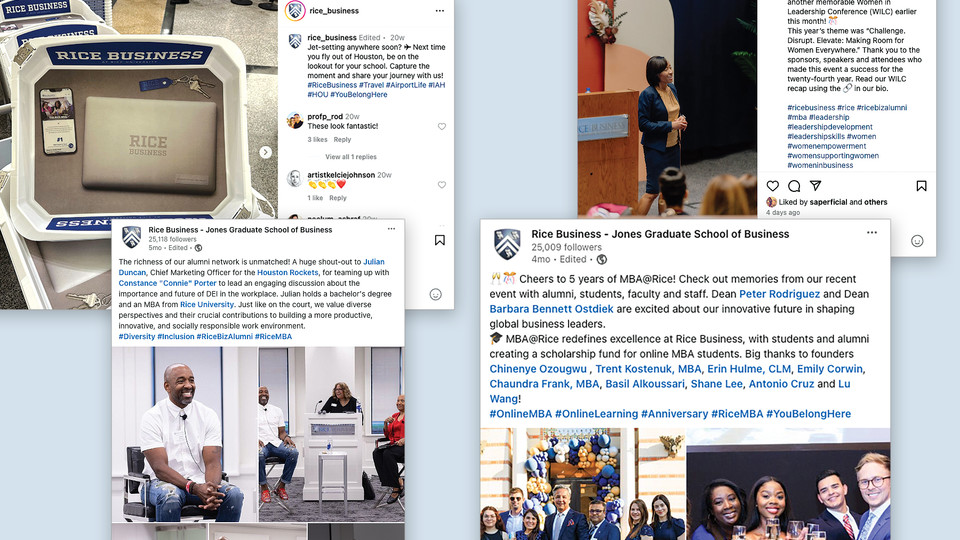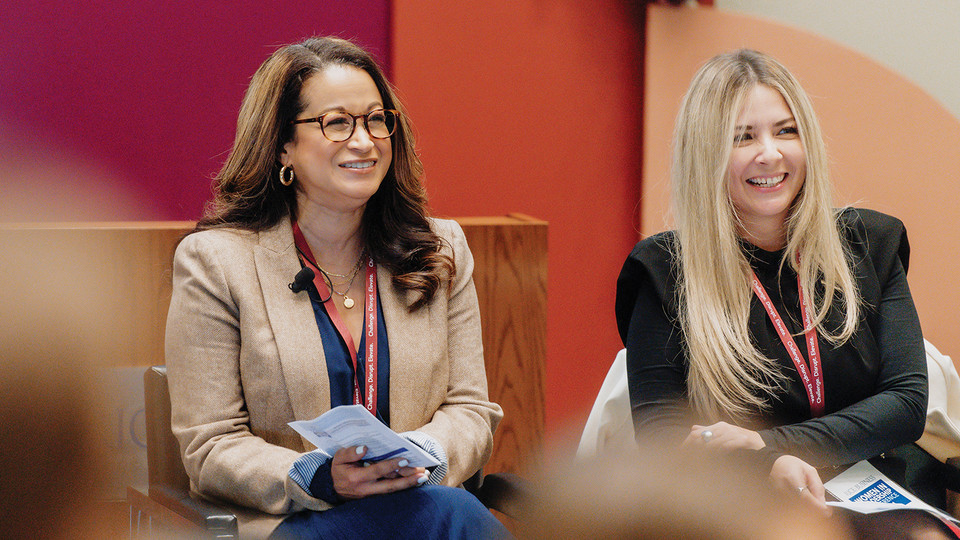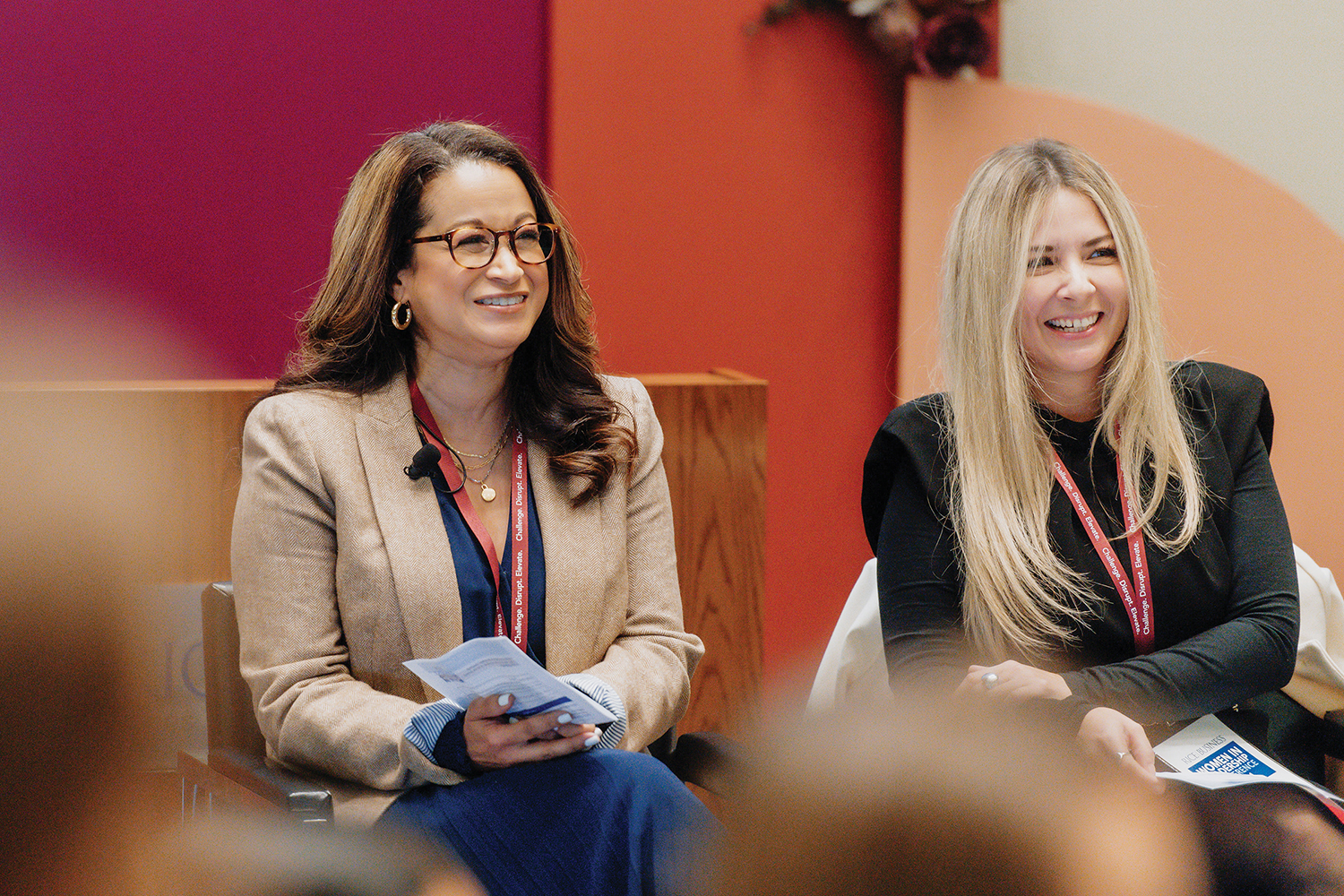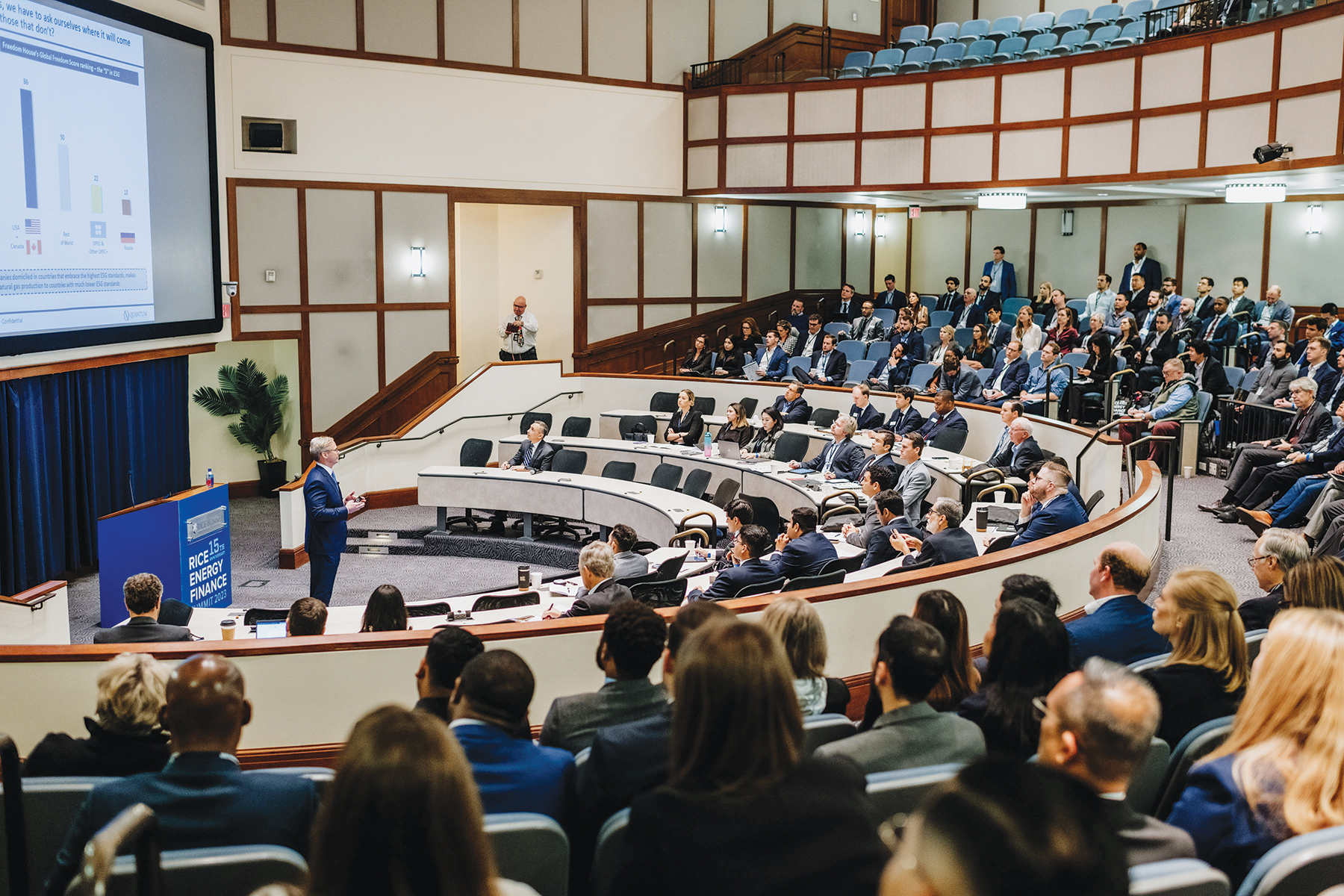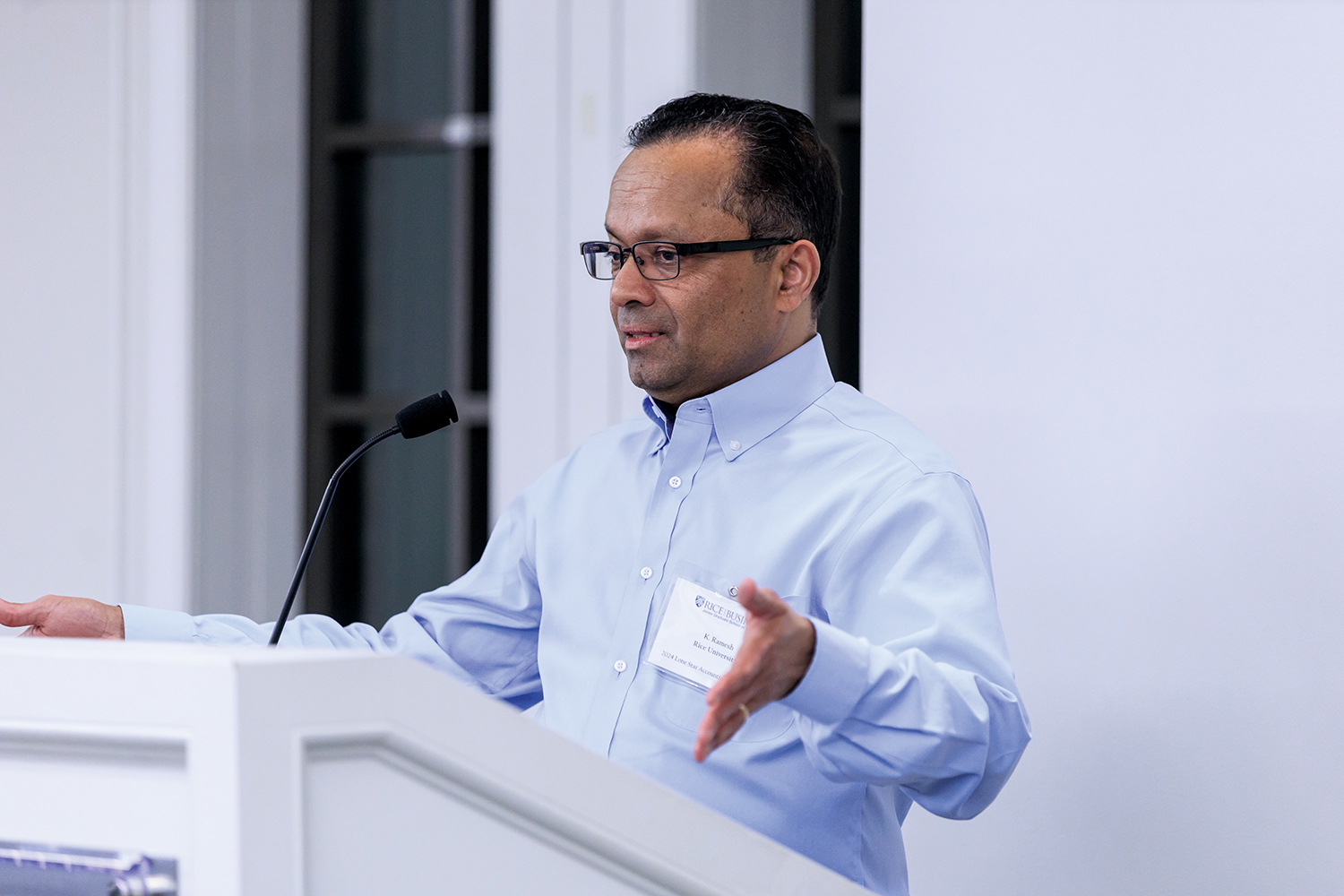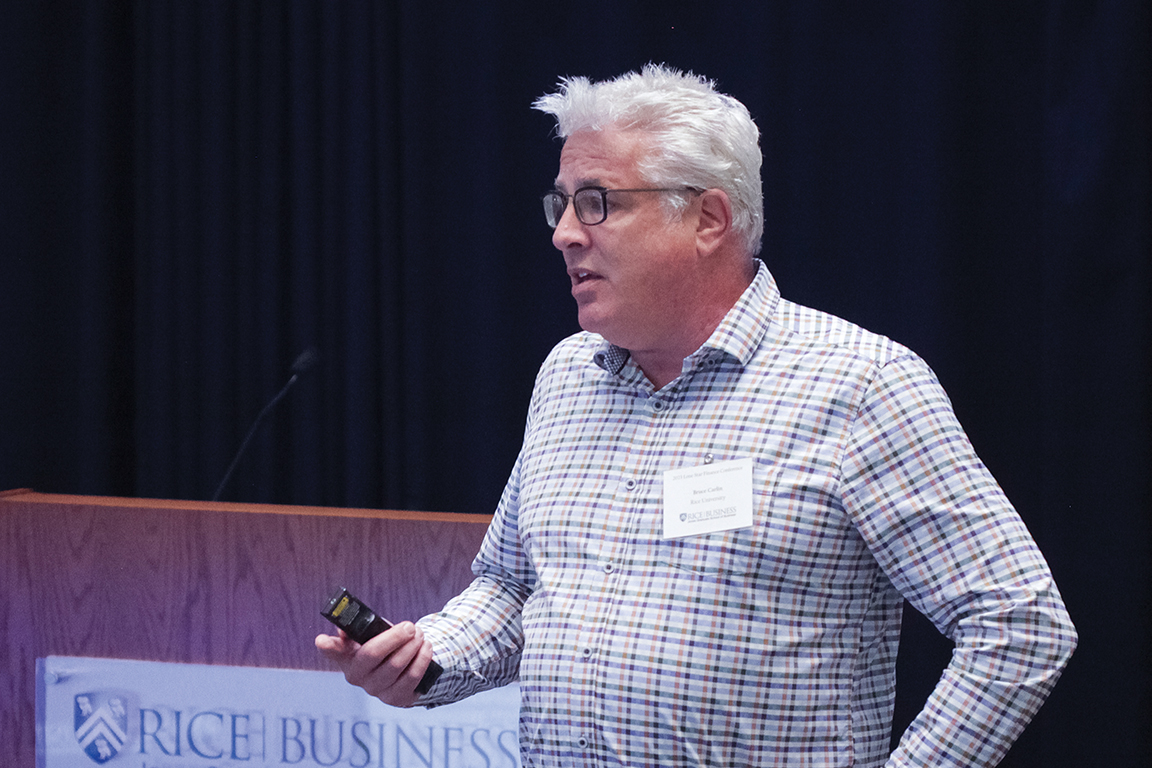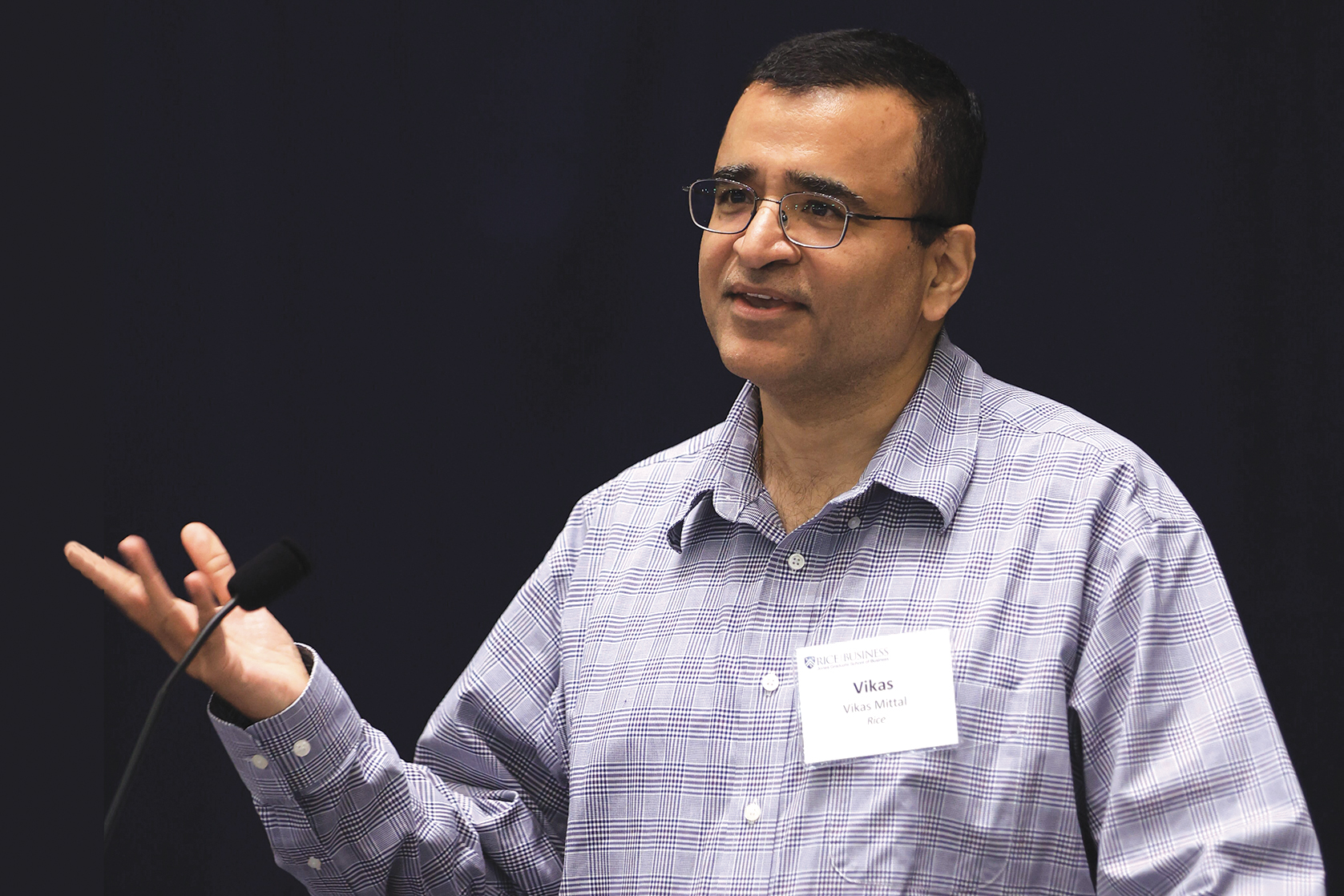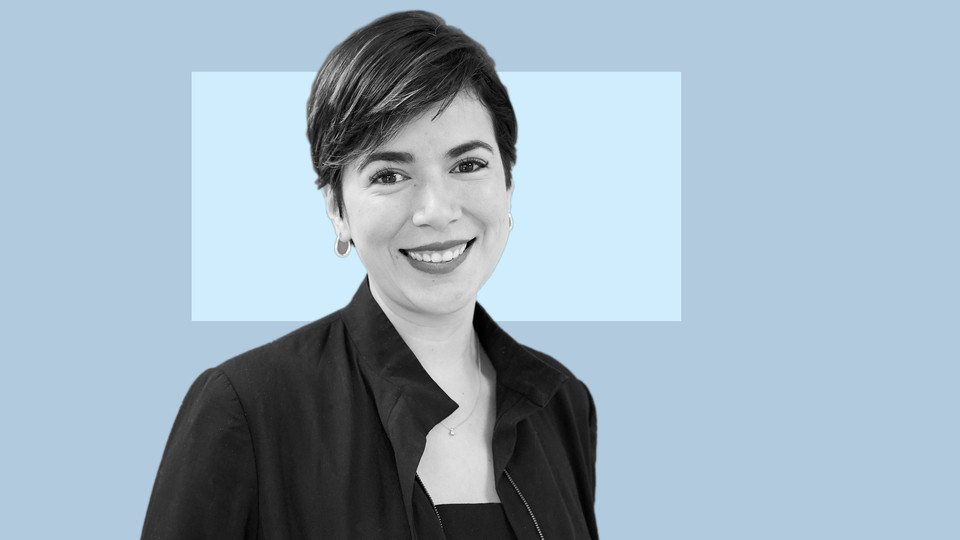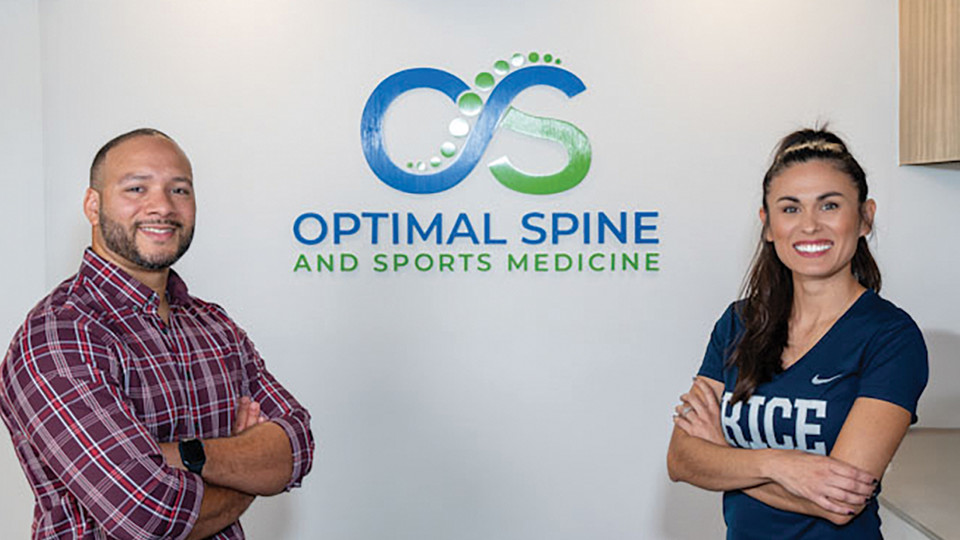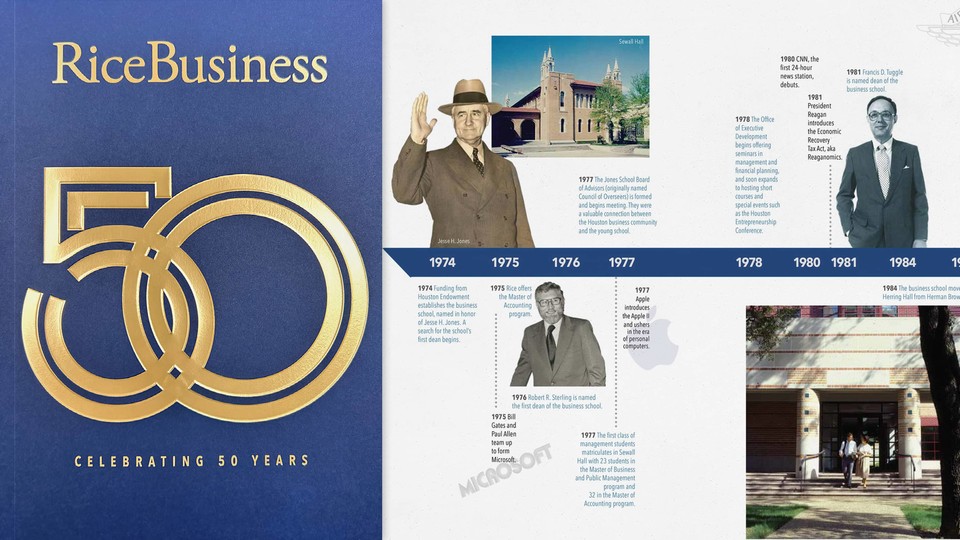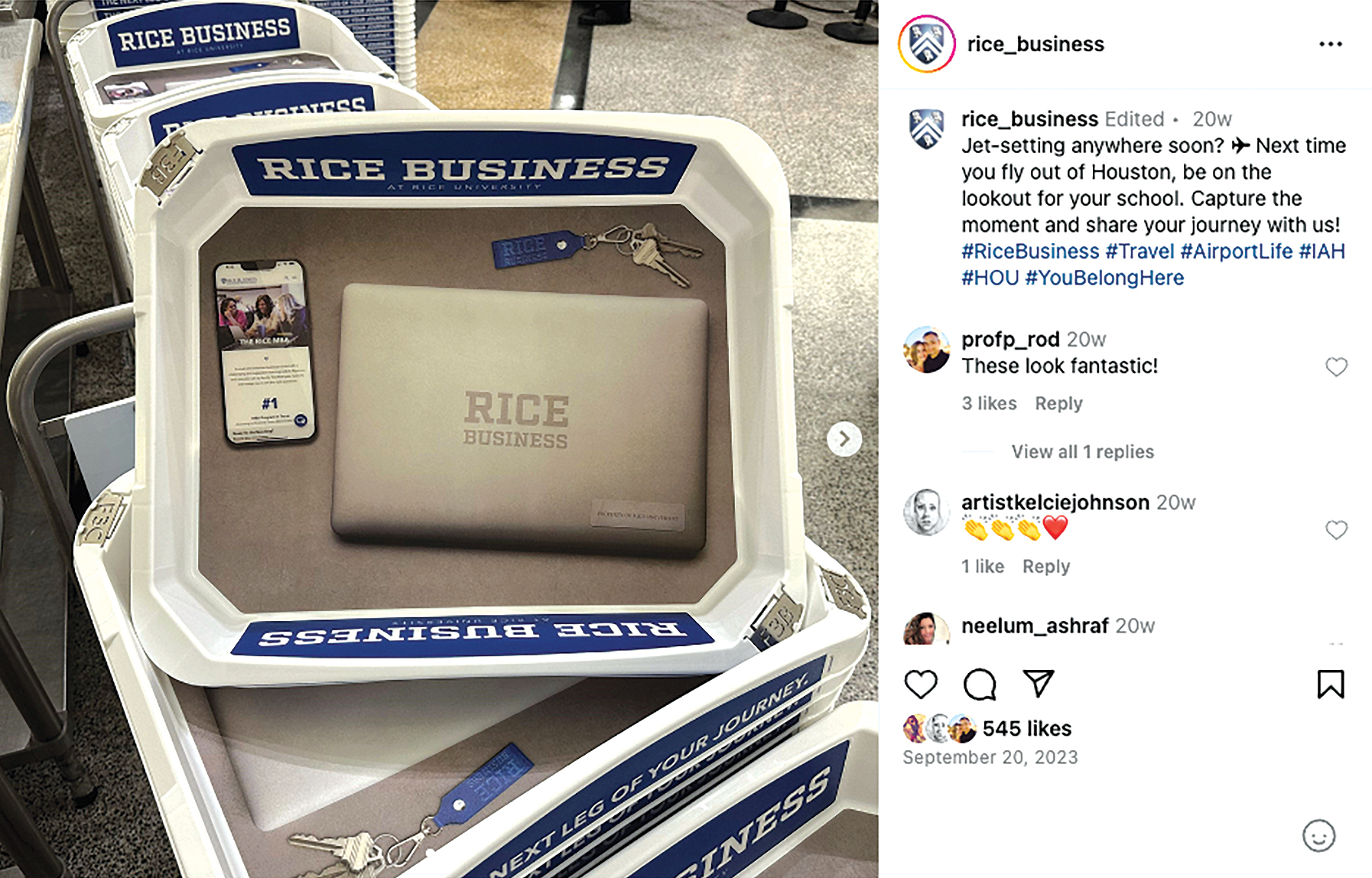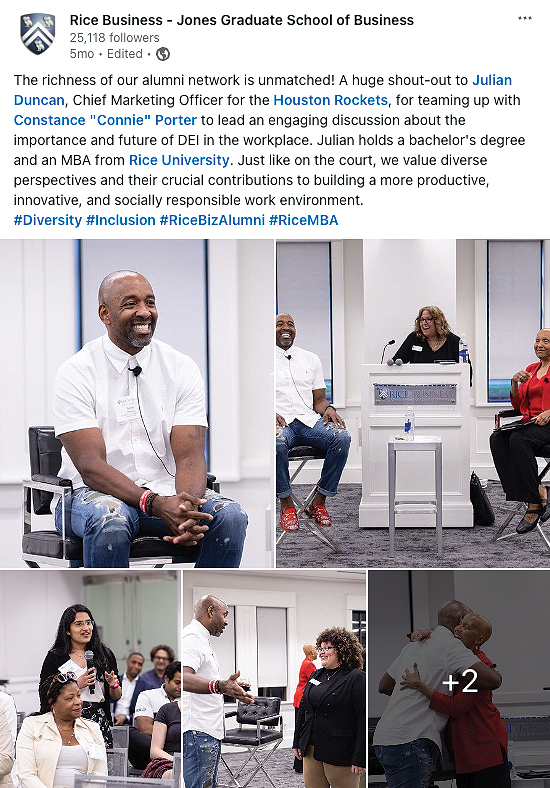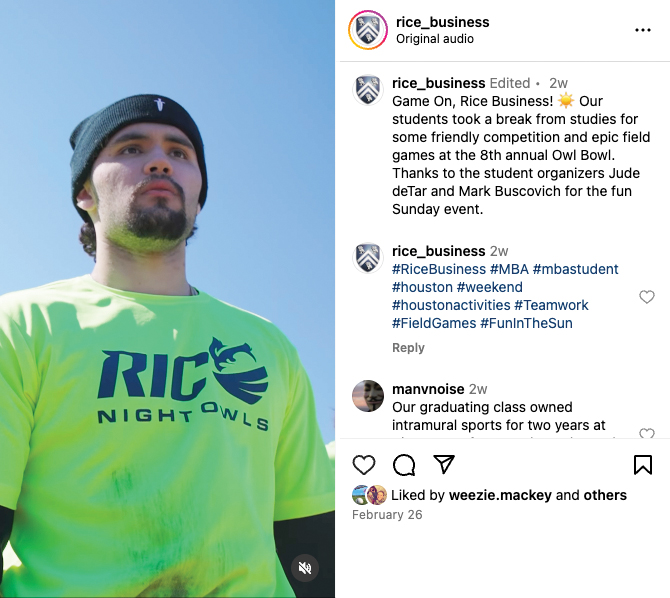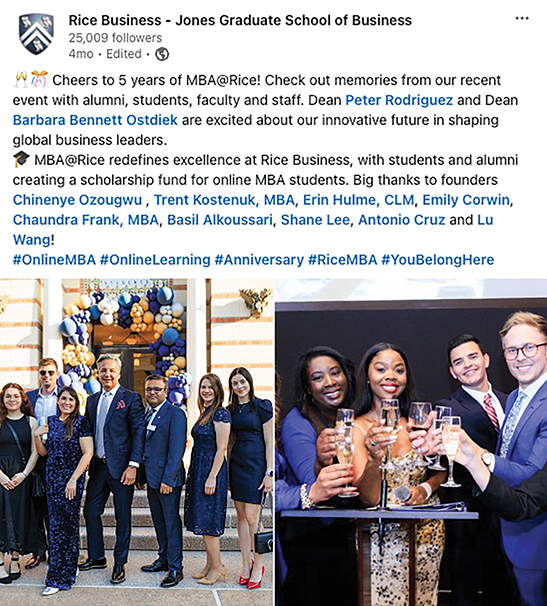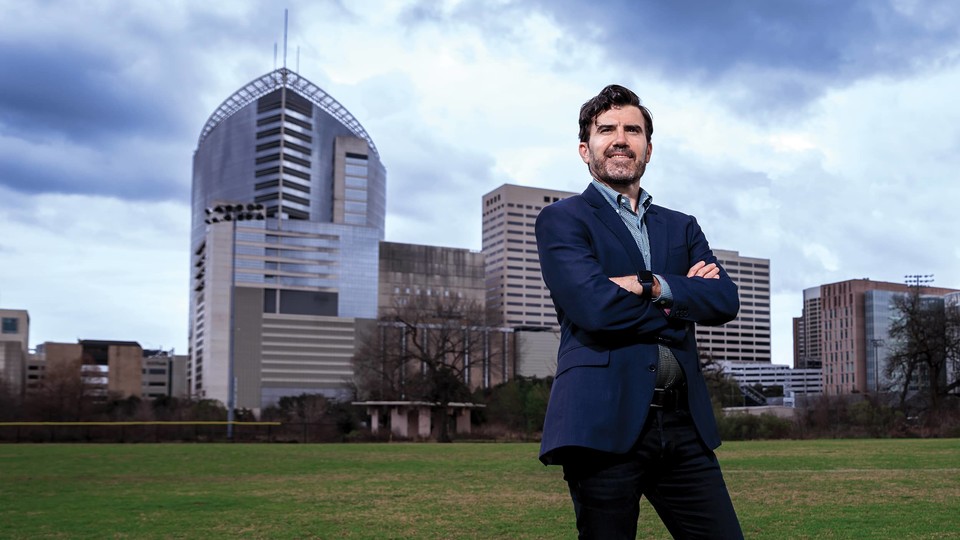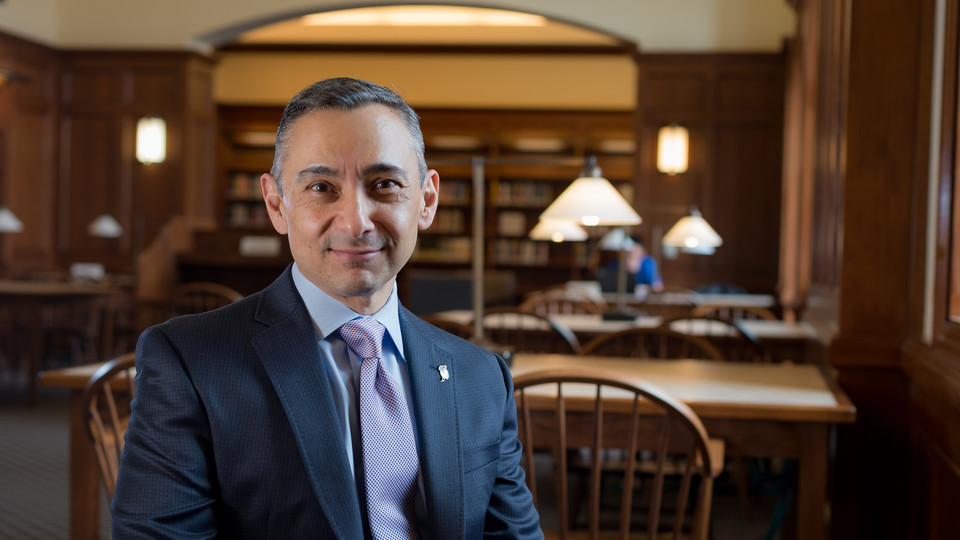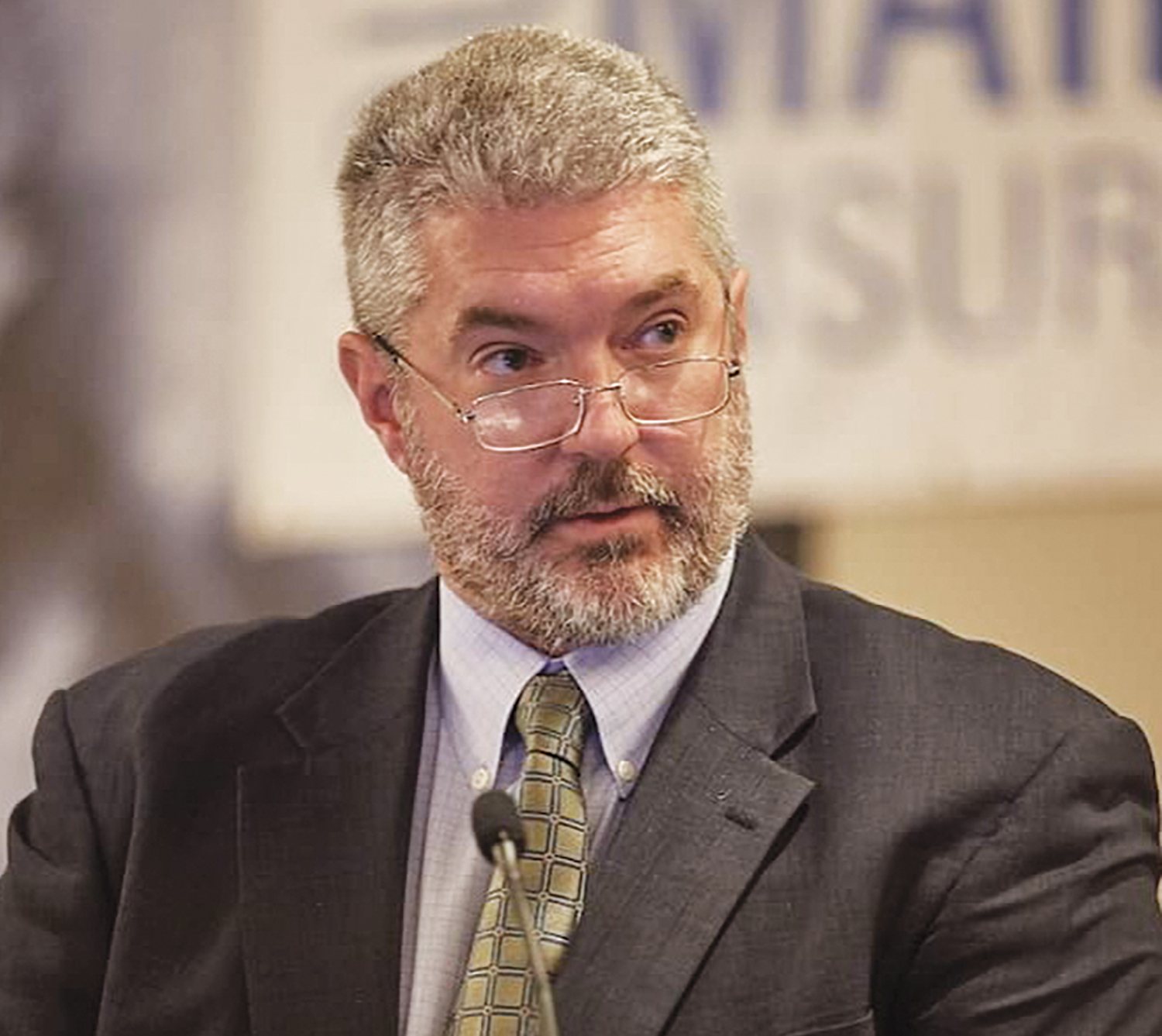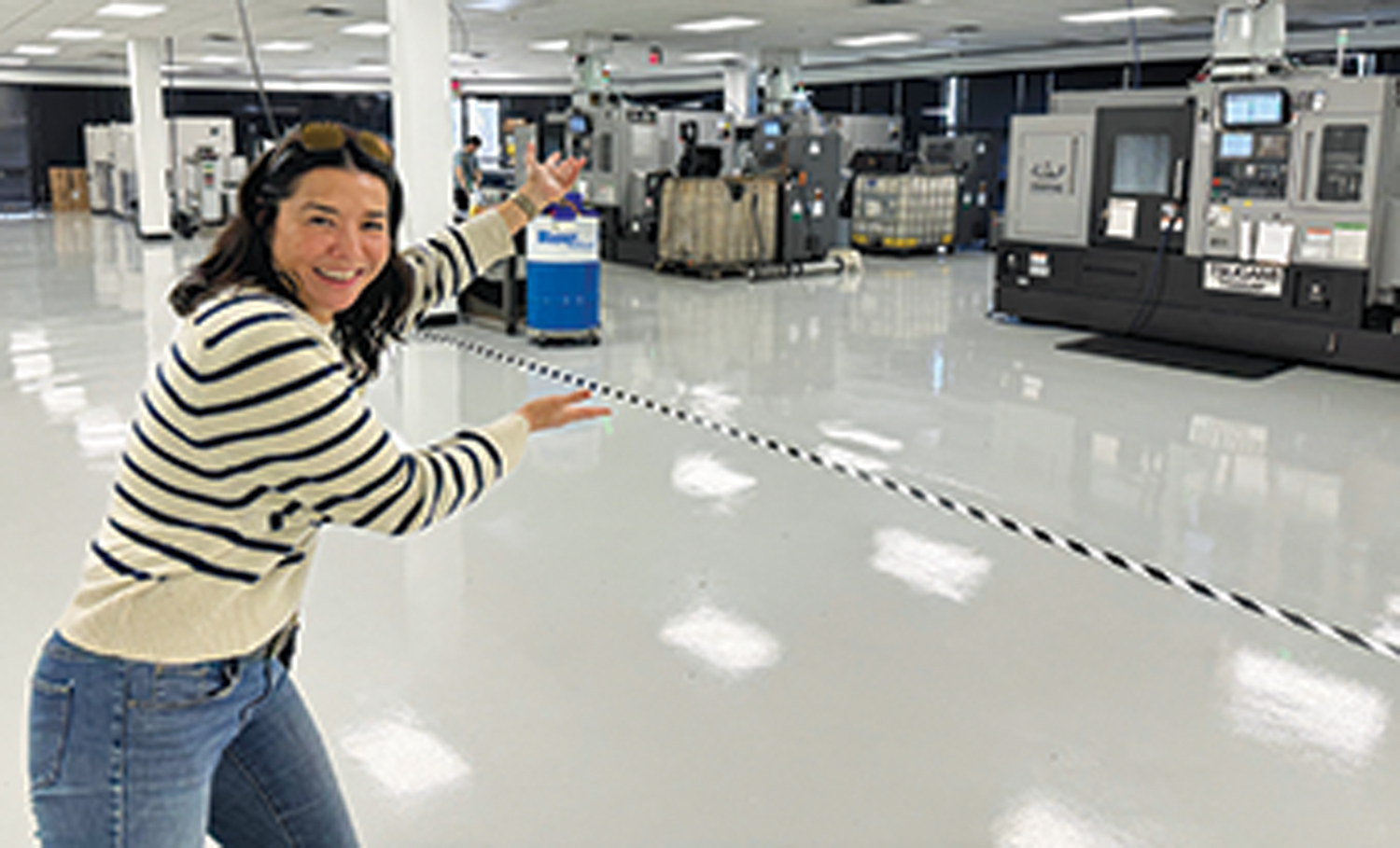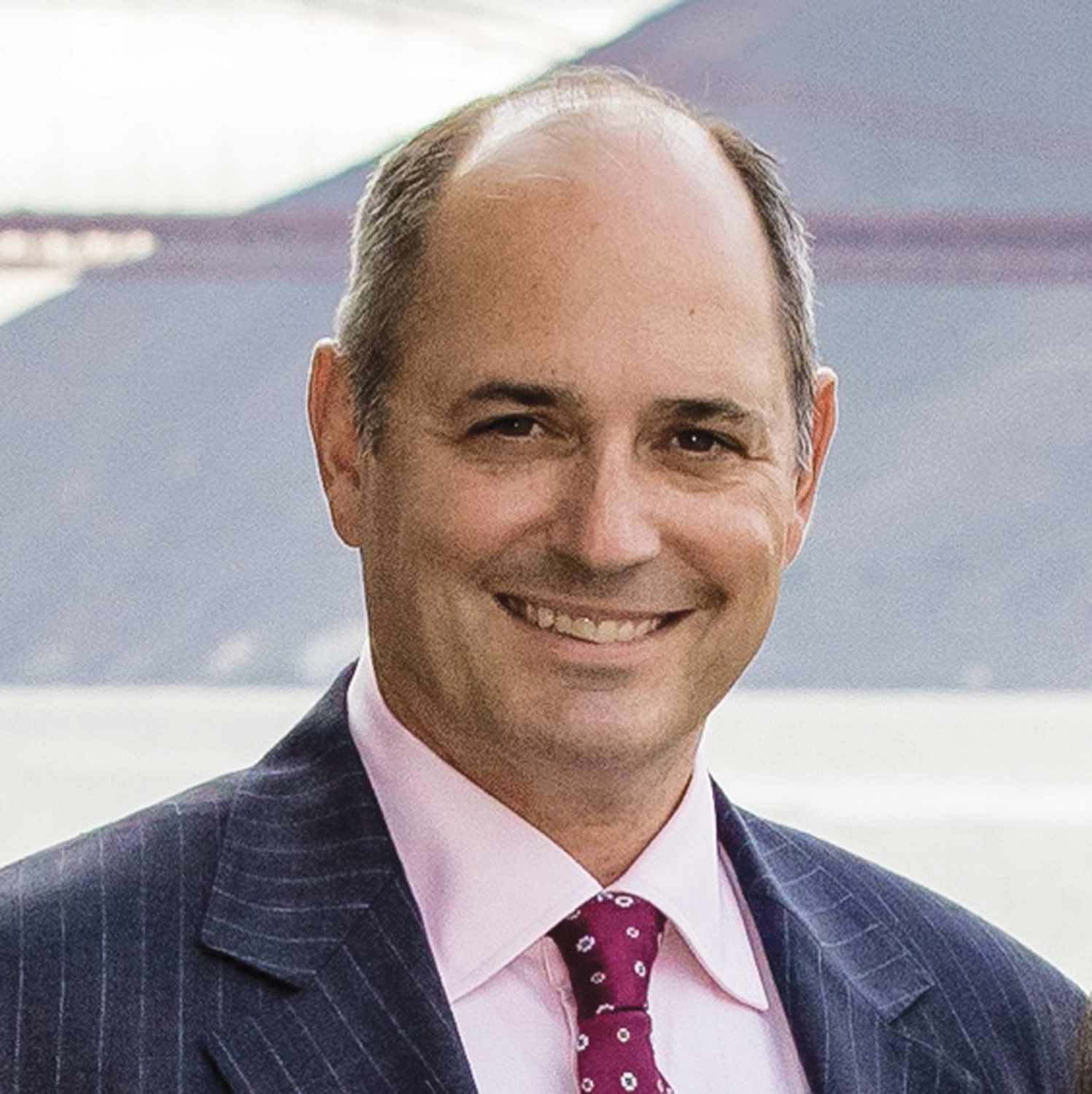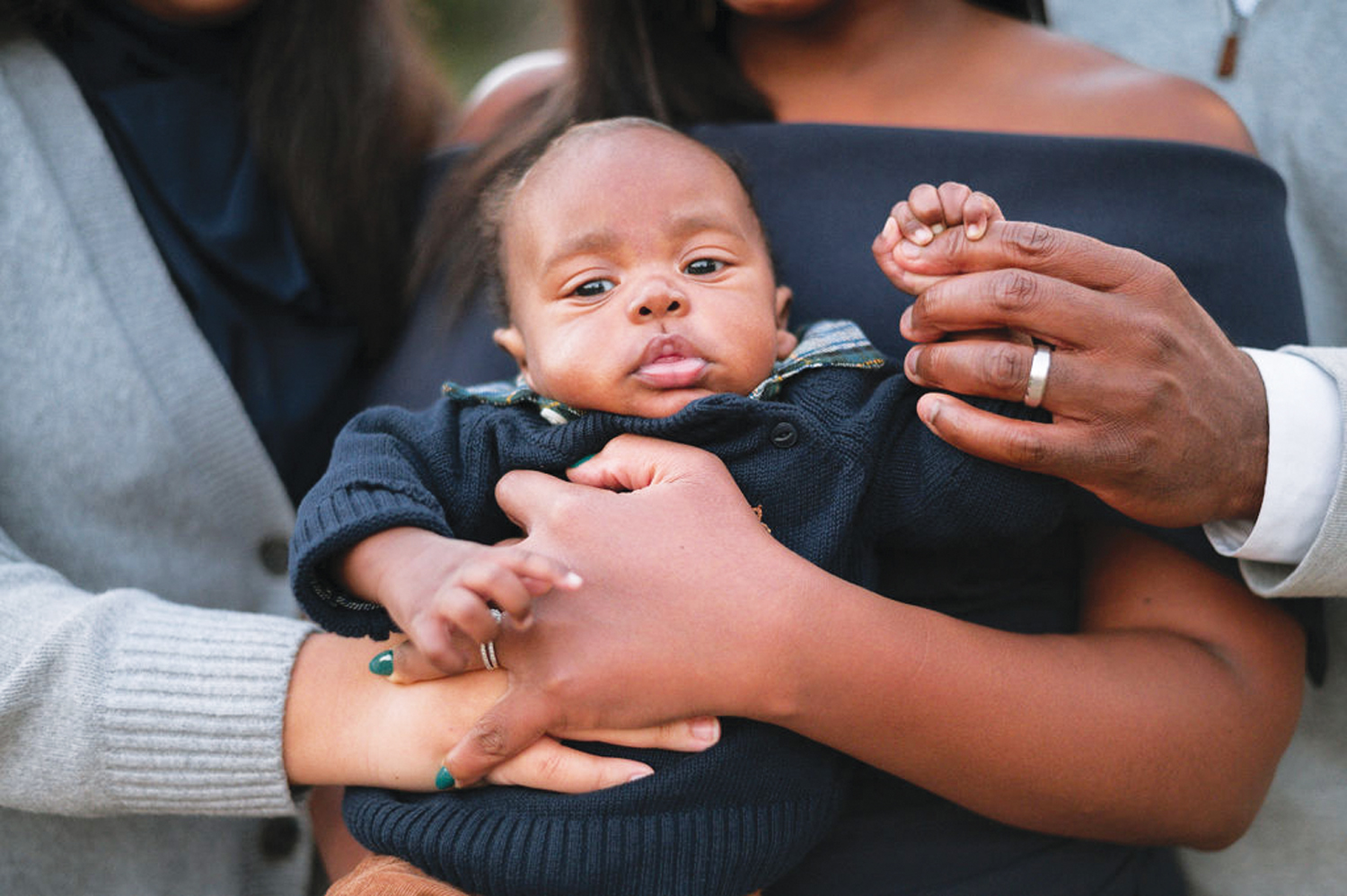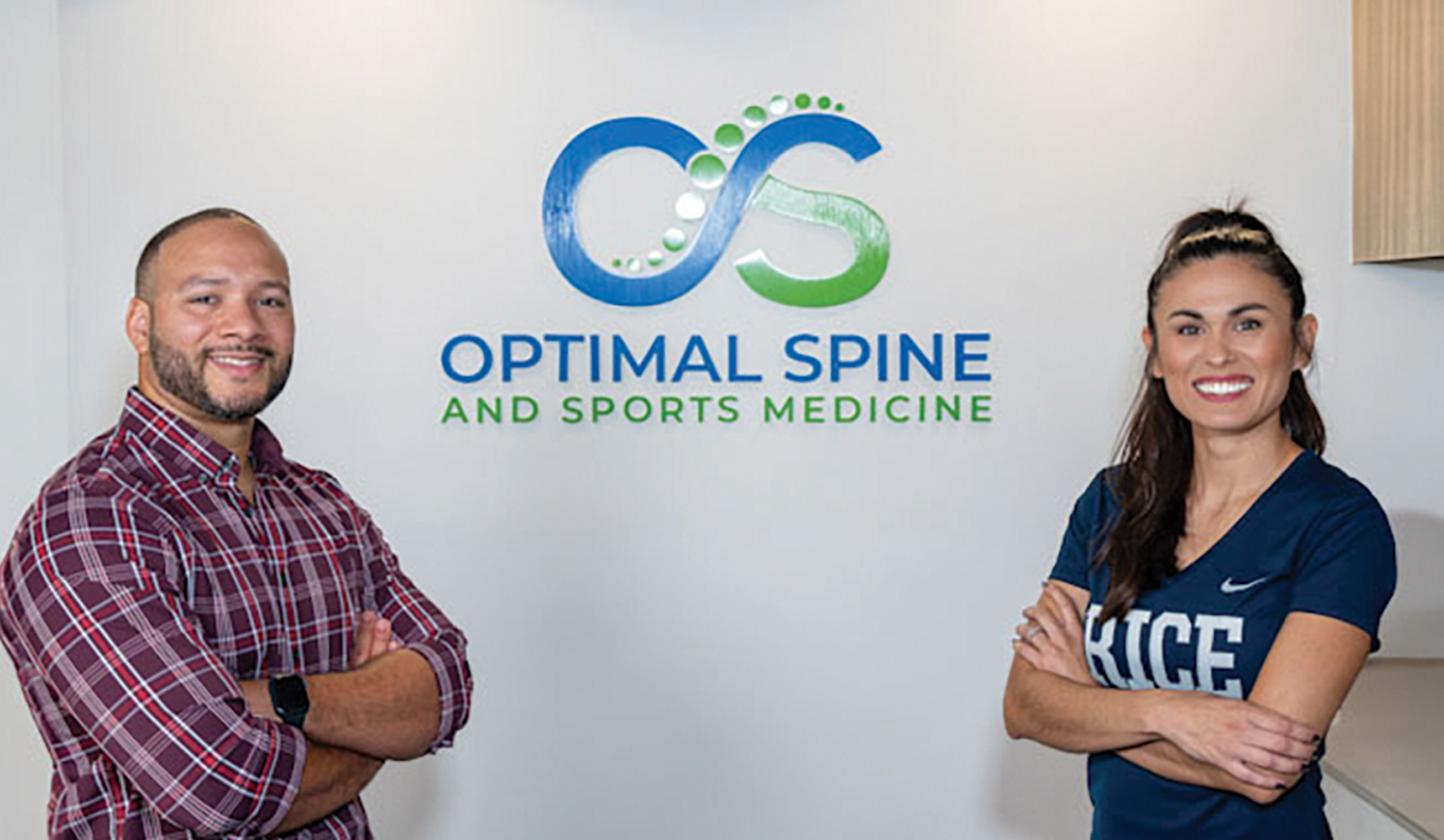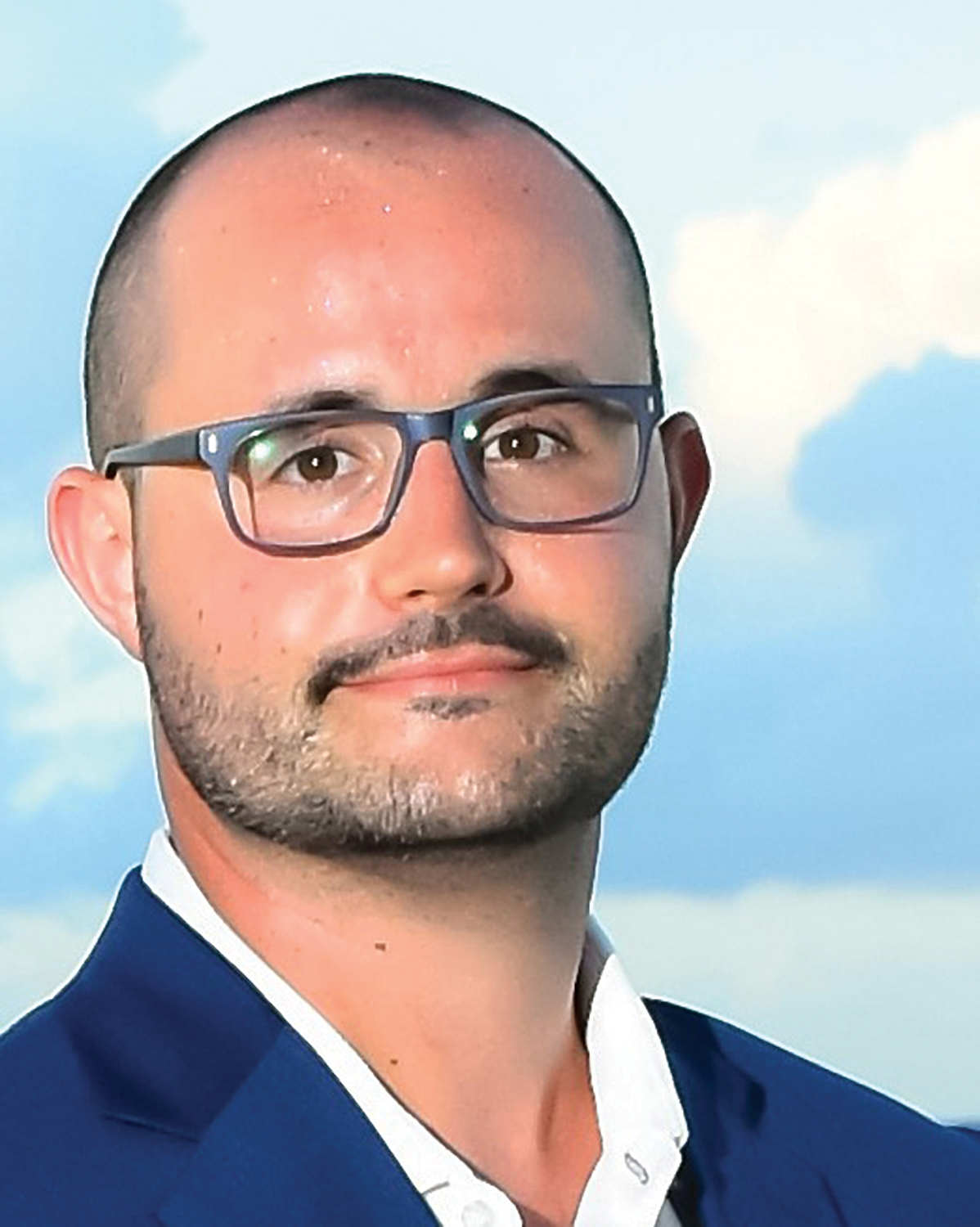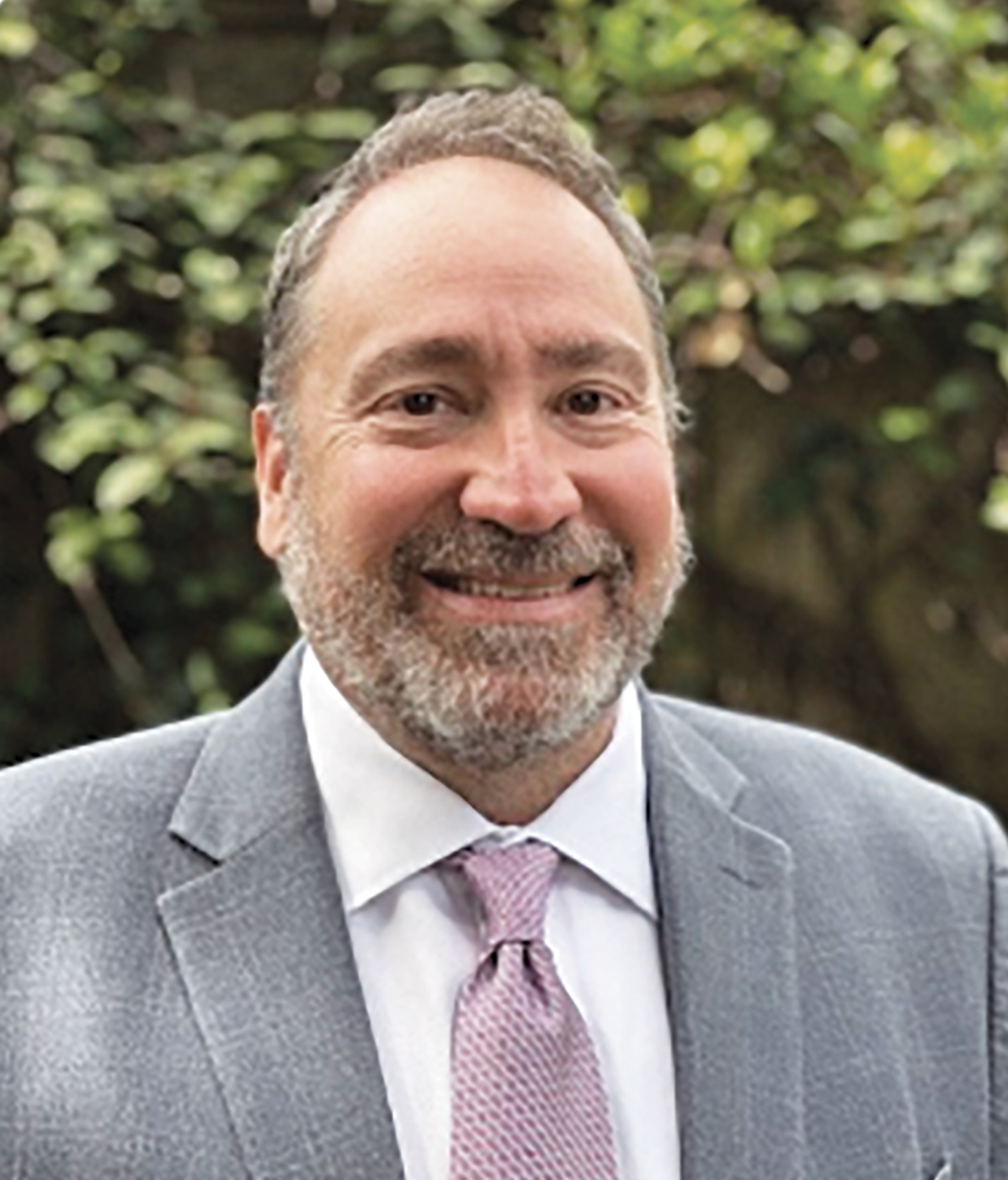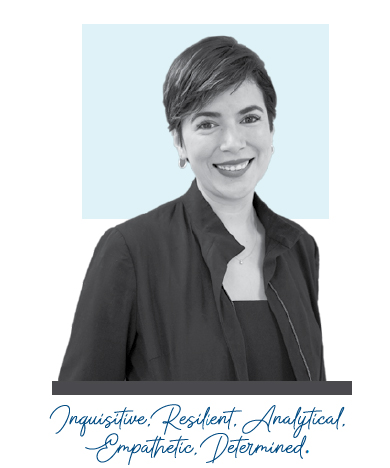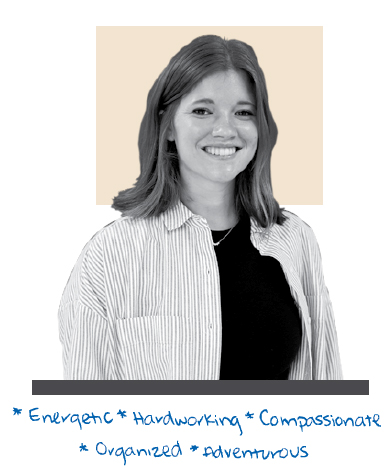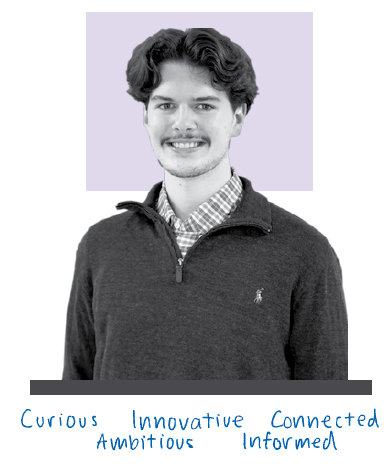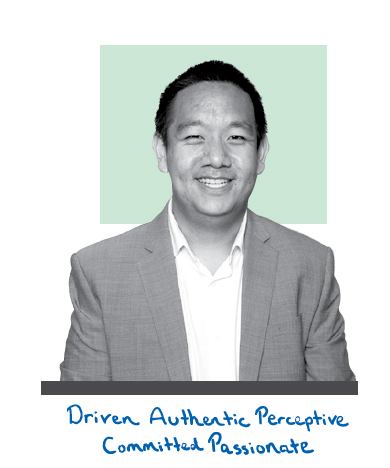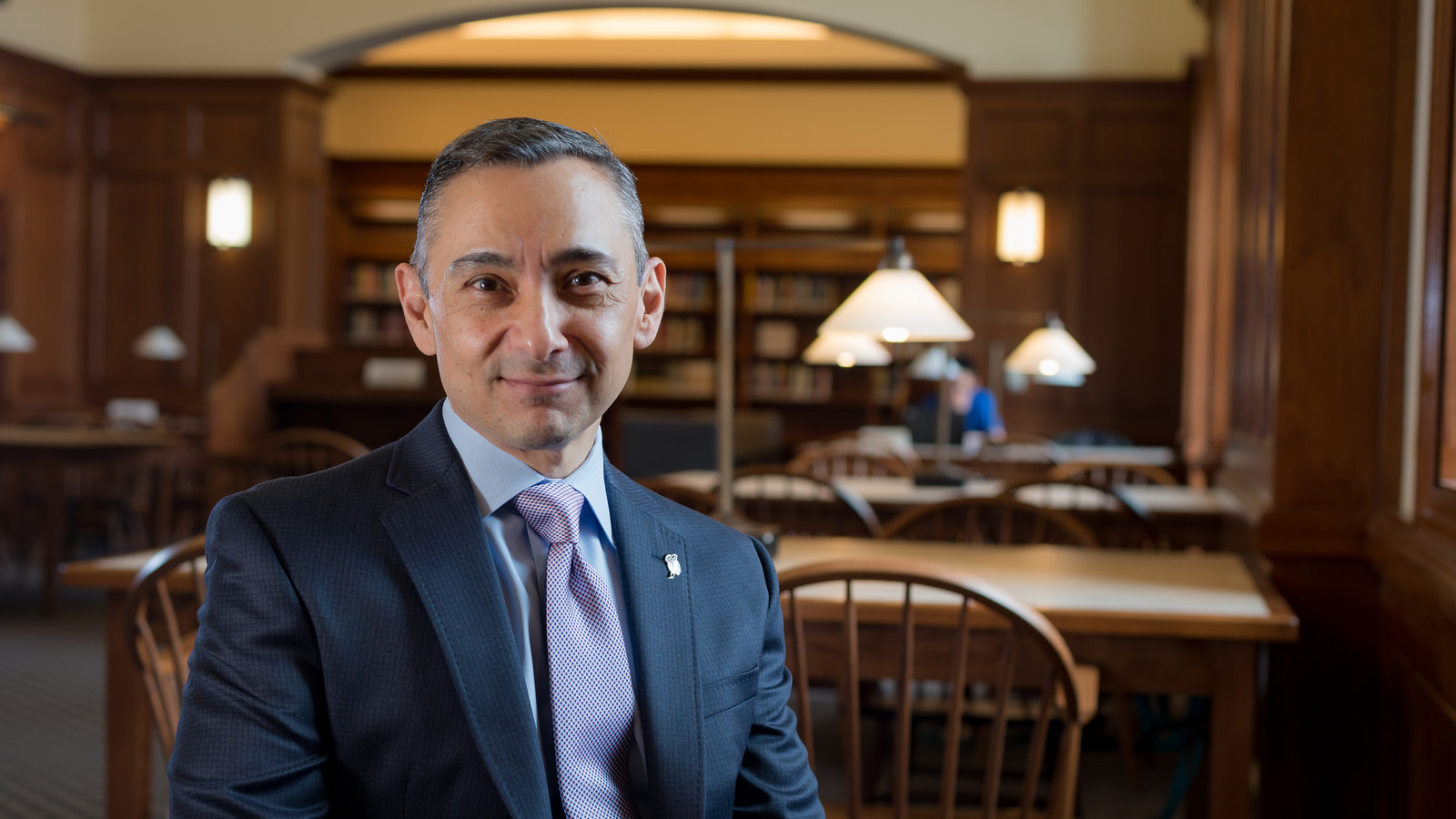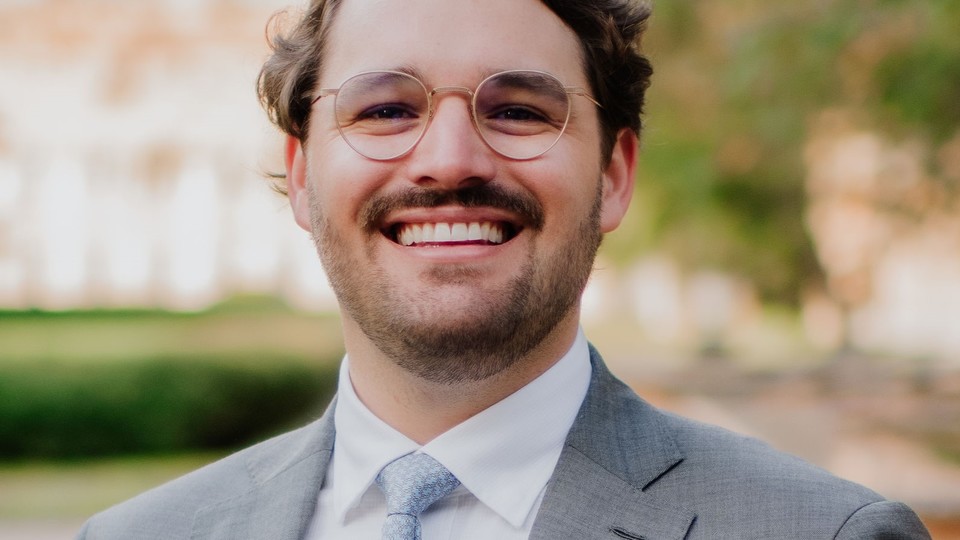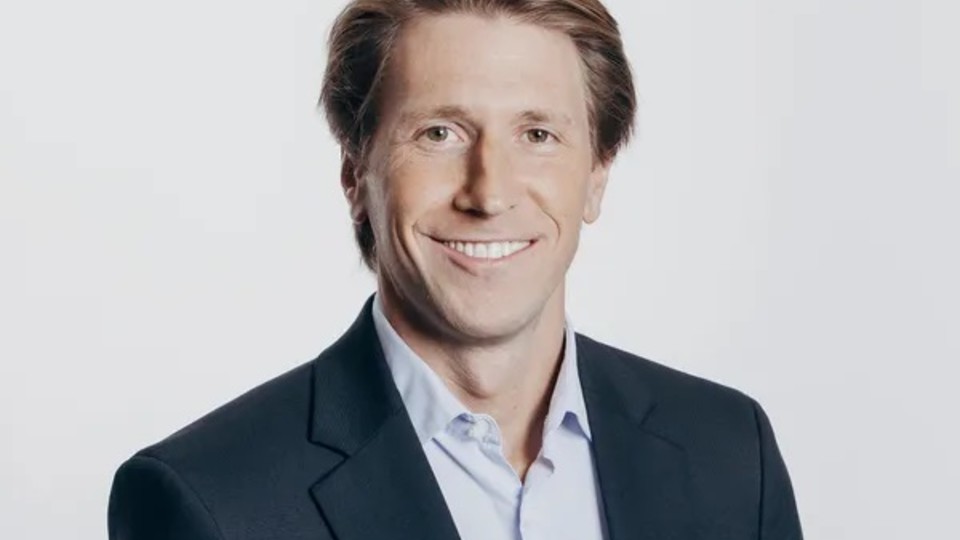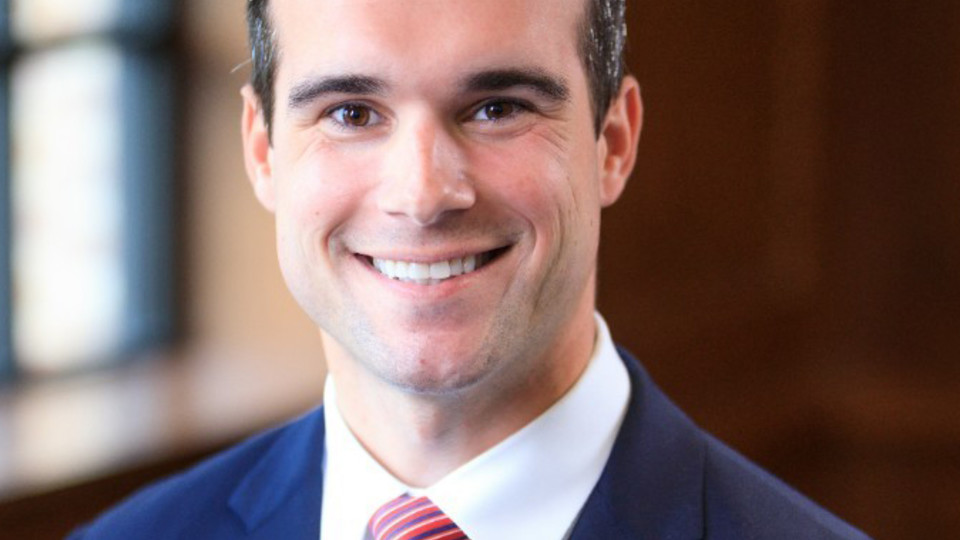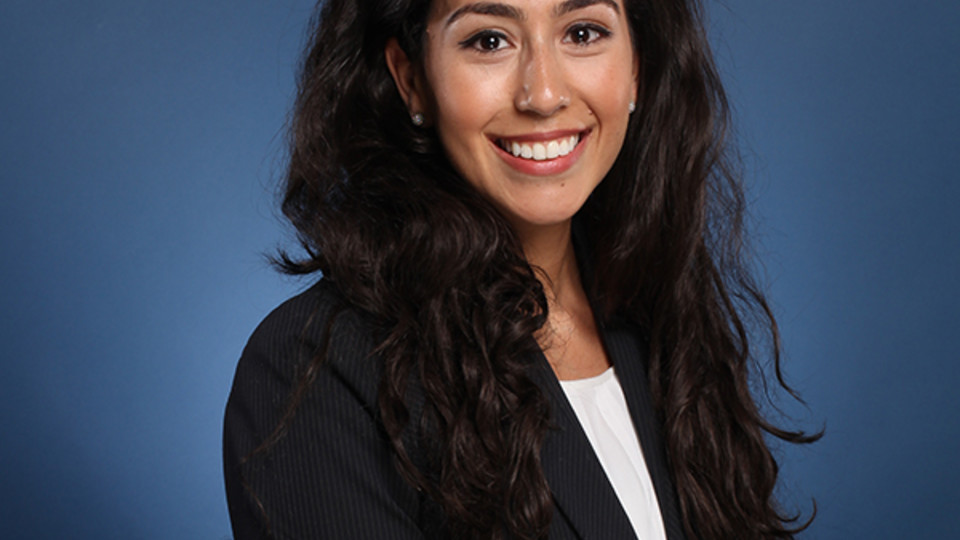[00:00]Intro: Welcome to Owl Have You Know, a podcast from Rice Business. This episode is part of our Pivot Series, where guests share stories of transformation in their lives and careers.
Brian Jackson is an expert when it comes to challenging himself in unchartered waters. The 2021 MBA@Rice online graduate has a diverse background and upbringing, from living in different corners of the earth as a child, to setting his sights on political science with visions of pursuing law, to pivoting from a role as an oil and gas landman to the renewable energy space. The new Rice Business Alumni Board president talks to us about the things that matter most, about how the adversity he has overcome was a blessing and also a gateway to his meaningful growth, both personally and professionally.
Our guest today is Brian Jackson, Online MBA, the Class of 2021. Hey, Brian.
[00:56]Brian: Hi, Maya, how are you doing?
[00:58]Maya: I'm good. You're coming to us from Boston.
[01:00]Brian: That’s right, I'm in Boston. I'm actually, it's an area called the South End, so, pretty unique historical location.
[01:07]Maya: I mean, you went to school in Texas. So, we'll talk about Boston in a minute, what brought you to Boston. But you have been busy since you graduated from Rice. And the Online MBA program is actually one of the newer programs that Rice has. And you are currently the manager of renewables origination at TransAlta Corporation and, also, the president of the Rice Business Alumni Board. Congrats! That's a really awesome role to have.
[01:36]Brian: Yeah, no, I've been, like you said, busy. It's been a really great role getting to connect with alumni, also, work with external relations. I just really wanted the opportunity to continue to give back and stay connected to Rice. And everything, kind of, fell into place, and here we are.
[01:53]Maya: Well, that's one way, certainly, to do it. You are the first president from the Online MBA program, which is super exciting. When I was considering Rice, the Online MBA program had just recently launched, and that was one that I had looked into as well. So, what was it about the Online MBA that really drove you to it?
[02:14]Brian: Yeah, you know, when I was looking at different MBAs, just finishing up law school, about to take the bar exam, decided on a whim to start looking at different programs, and realized I was going to need a ton of flexibility. Starting out as a lawyer, you have pretty much set requirements and expectations and your first year is pretty rough. The online program gave me that. It gave me the flexibility to really fit it into my schedule. The evening classes, they were possible, let's say driving home late from whatever county I was in, I was able to log into class and get the information.
So, that's really what pulled me to it. Beyond that, it was also, it's connected to Rice, right? And I had always wanted to be a part of Rice, to be a student at Rice, to be an alumni from Rice. And so, this was, really, I, kind of, felt like the only way I could do it all and, kind of, fit it into my timeline.
[03:08]Maya: Yes. And so, you went to Texas A&M and you got a bachelor degree of political science. And then, you went to South Texas College of Law for your law degree. So, tell me about your time at A&M.
[03:19]Brian: You know, A&M was an interesting time for me. I grew up overseas. So, when I was born, my parents were living in West Africa. And after that, we moved to Canada, then Houston, then Thailand, Singapore, Malaysia, and then Indonesia, the last for me.
[03:35]Maya: Wait, what did your parents do?
[03:37]Brian: So, my dad works in oil and gas. He worked for a company called Cameron, which was later Schlumberger.
[03:42]Maya: Yes.
[03:43]Brian: But my parents had lived overseas since the 1980s, so it was just always, kind of, a part of the picture. We were going to do it, you know, no matter what. But when I moved back to the U.S. to go to A&M, it was my repatriation. And I hadn't lived in the U.S. what, in 15, 16 years? So, it was a bit of culture shock to, kind of, say the least.
[04:03]Maya: What was your favorite place where you lived? Because you just, you just told me a whole lot of fascinating places, and I want to know which one your favorite was.
[04:12]Brian: I thought about this. I think I was, what, in first and second grade when we lived in Thailand. And I was 16, 17, 18 in Indonesia. So, like, different age group, kind of, different interests. But I think Indonesia is probably my favorite. I would say my most lifelong friends are the ones that I stay connected with. I actually just had a friend's wedding in D.C., where all the friends from Indonesia flew in. So, folks from Australia, from Norway, all of a sudden, we're all in D.C., and it's like no time has passed, an incredible country, an incredible culture. Really just privileged to be there.
[04:47]Maya: Well, so you, you really grew up in an environment where diversity was, sort of, weaved into you. From what it sounds like, you needed to know how to adapt to lots of different kinds of environments with lots of different cultures and ethnicities. And I mean, that's a, that's a skill. Well, it's a quality that is difficult to teach. Some, you can learn it as a skill, but not everybody. Well, very few are actually born with it, right?
[05:15]Brian: Yeah, you know, I think, growing up, it was always this idea that diversity actually created more value. And I remember my parents were so proud, my friend group in high school, it was probably about 15 guys that we'd all hang out and drink beer on a Friday, but…
[05:31]Maya: In high school? Don't tell people that. I'm just kidding. It's a different country, it's all good.
[05:35]Brian: But across the 15, we represented, let's say, seven different nationalities and ethnicities. It just, kind of, that diversity itself was just so incredible. And my parents recognized it, it was a part of what I recognized. And that's why I think they're probably my best relationships, because we really shared this, kind of, unique setting and group.
[05:57]Maya: And so, coming back to Texas, right, what year was that?
[06:01]Brian: 2012.
[06:03]Maya: Okay. So, what was that like? That was probably a culture shock for you as well.
[06:09]Brian: Yeah. I think when I was abroad, and I think the longer time goes, the more I reflect on it, I, kind of, am figuring out what all this meant to me, and, you know, there were, kind of, some significant learnings that have happened over time, right? But I think the biggest thing was recognizing that, when we were in Southeast Asia, you know, I really clung on to this identity, “Oh, I'm from Texas. I'm a Texan. We're Americans,” and this whole thing because that was, kind of, all I really felt like I had, right? And then, all of a sudden, moved back to Texas and folks at A&M would be like, “Oh, yeah, what high school or what school did you go to?” And I'd be like, “Oh, man, you know, there's a long version or a short version.” And in the beginning, I wanted to tell everybody the long version. And then, after a while, I, kind of, I realized maybe pick and choose the audience here, but, kind of, then recognizing that, yeah, after being abroad and thinking, “Oh, yeah, I'm this Texan,” realizing maybe I'm not, you know, and maybe there's another way to define myself.
[07:10]Maya: Yes. So, that's interesting that you say that because I think that you want to feel connected and relatable, right, to this place. And then, if you're gone for a little while and you come back, it's changed and you've changed based on the experiences that you've had.
[07:29]Brian: No, exactly. And yeah, coming to terms with what that meant. I mean, honestly, college is hard for everybody, and then you, kind of, throw in a bit of identity crisis to it and trying to sort out who you are, I don't know. I was fortunate to do it at A&M. It's a great town, College Station – Bryan.
[07:48]Maya: Sure.
[07:48]Brian: I also found some great mentors, kind of, later through college. I started working at a small firm for an attorney named Rick Davis, and really just a great guy, great firm. And doing the work let me, pretty much, it, kind of, helped me figure out, kind of, different boundaries or different ways and different connections to Texas and, you know, finding, maybe, more identity in a profession.
[08:12]Maya: Is that the person that propelled you to pursue your JD, your law degree?
[08:18]Brian: Oh, absolutely. I think I showed up to undergrad with this idea that my dad was an oil and gas, I had to go back and be in oil and gas, I wanted to live abroad. So, the straight ticket was to be a petroleum engineer. Well, I'm not very good at math or science, so it didn't go my way. So, I pivoted into political science, and that was when I met Rick.
And I mean, I was meandering in political science, thinking, “What do I do? What is this degree really going to… what doors is it going to open?” And law school, I mean, it made a lot of sense for me at that point, if that makes sense, Maya.
[08:52]Maya: It totally makes sense. So, my dad's a petroleum engineer from Azerbaijan. And he, actually, was the one that was like, “You should go to law school.” I was like, “No, I don't want to go to law school.” So, it's, kind of, funny that you thought your path was going to be oil and gas and it turned out to, actually, we're going to jump to that in a minute, but it's turning out to be oil and gas. But we're going to go down the path of your journey of what led you back to oil and gas. So, you graduated from A&M, and then, I guess, you took the LSAT and went straight to law school.
[09:28]Brian: I took the LSAT and, yeah, went right to South Texas. South Texas felt like, really, the option for me because it was located in Houston, it's downtown. And I really felt having that proximity to the courthouses, having that proximity to the other firms around would open doors for clerking or, kind of, part-time employment during school, which is what I inevitably did. I worked for a really storied firm, called McGinnis Lochridge and I clerked for them, I think, was it 2L and 3L years for my second and third year, and learned a lot from some really incredible attorneys. And that's really what I felt South Texas was offering, was this unique opportunity to be in the thick of it.
[10:12]Maya: Okay, yeah, because the first year they scare you to death, the second year they work you to death, and the third year they bore you to death. Is that, is that about right?
[10:21]Brian: You have it spot on. It's Socratic seminar, right? And the professor has a roster of all the students, and, you know, they'll go down the list and randomly pick. And all of a sudden, “Mr. Jackson, please, you know, recite the case,” and you stand up and have to give a summary and then talk about the implications of the story of the case and what precedent it sets. And yeah, it was awful.
[10:45]Maya: Well, yeah, I mean, I would, I would be sweating just walking into that, into that lecture hall, knowing that that's a possibility and most likely that's going to happen to me sooner or later. What kind of law were you interested in? What kind of law did you want to pursue?
[11:00]Brian: I was trying to figure it out. And at the firm, I was seeing civil law and, kind of, oil and gas litigation. So, getting a bit of exposure there. And then, at school, you were able to pick your classes and try to, somewhat, specialize. And they had a ton of oil and gas, kind of, law-focused courses. So, that's what I really did and I leaned into, thinking that, ultimately, I would take it and be an oil and gas attorney, either practicing through land and title work or being what is, kind of, pseudo law as a land man. So, that's where I shifted the focus towards, really, oil and gas.
And in law school they do on-campus interviews, what is it, your first and second year. And so, different companies will come in, different firms. And I was fortunate, Anadarko Petroleum, they came and interviewed looking for landmen. And it was an internship over the summer. And you would go up to Midland, spend the summer in Midland. And if it all went well, they'd offer you a job post-graduation and post-bar, right? So, I did that my second year, spent the summer in Midland, which was yet another culture shock.
[12:09]Maya: I lived in Midland for six and a half years. My dad was a petroleum engineer, so I know exactly where you were. And my husband's from Odessa, or as he likes to lovingly call it Slowdeatha. Sorry if I offend anybody. But yeah, I'm very well-versed in Midland. And it is significantly more of a metropolis than it was in the ‘80s when I lived there. So, you, like, have a whole lot more, like, options in terms of where to go to dinner and all that. But no, I mean, it's not a Houston. Or, I mean, it's not even a Bryan, College Station, right? Not to knock Midland. There's some great things about it. But it's a culture shock.
[12:48]Brian: Yeah, it was. And, you know, I spent, what, three months there, and they had offered me a full-time role back in Midland. And I was ready to go back and work a few years post law school. But Anadarko was acquired by Occidental. And my timing was just not right. And so, actually, I think, a week before my start date, they rescinded the offer.
[13:10]Maya: What was that like? That probably was unexpected.
[13:14]Brian: So, I think the power of a network, it can just cannot be understated. I sent out a billion emails. I was scouring LinkedIn. I was talking to career resources at South Texas. I reached out to A&M, did the same thing. My old firm in College Station had said, if I wanted to go work there, I could. Really wasn't a part of my plan, so I didn't take that offer. But one night, happened to be out at the bars in Houston and ran into an old law school classmate who said, “Hey, I work at a firm and we're looking for associates. Do you want to come interview?” And three days later, I had a job.
[13:50]Maya: Awesome. Did you like it?
[13:52]Brian: Yeah. You know, I think, when you're searching for a job from a position of just necessity, it's so different, the questions you ask, the values you're looking for, kind of, this idea of mentorship and growth. Maybe are, kind of, all put on the back burner because you're just…
[14:09]Maya: Need a job.
[14:11]Brian: You're looking for a paycheck. And so, that's where I ended up, right, kind of, in a safe harbor, so to speak.
[14:19]Maya: But maybe not the best fit?
[14:20]Brian: Yeah, maybe not the best fit. Exactly. And, you know, I think having had that experience, now when I look at a role, or let's say recently when joining TransAlta, it changed the questions I asked in the interview. It changed, really, what I was focusing on and the indications I was looking for because of that experience, right? But you don't know to look for those things or to ask those questions, I think, unless you've had that exposure.
[14:45]Maya: Or wisdom, right? Older and wiser.
[14:47]Brian: And the wisdom.
[14:50]Maya: So, you were there. How long were you there at that firm?
[14:53]Brian: Just a little over a year. Unfortunately, while I was working there, COVID happened in March of 2020, and client outlook didn't look so great. And so, kind of, the workload diminished and attorneys rely on billable hours. And if you're not billing anything, you're not generating revenue. And so, you know, you're not really needed.
[15:14]Maya: So, then what do you do?
[15:18]Brian: So, then what do you do? I think the way I put it, you know, you can never quit, right? You always have to be moving and always be thinking about your next step and how you're growing and developing. So, I saw what was happening in the industry. So, I built a small book of business that I was able to carry over myself. And I sustained, kind of, what I needed to do until I figured out what made sense and where I should be heading next. I knew I didn't want to be a solo practitioner. I knew I didn't want to have my own firm, but I was able to take and, kind of, use what I had to get me and propel me to where I needed to be next.
[15:59]Maya: Was that when you decided that you wanted to pursue law? Or, was that when you decided you were going to shift to another profession? Is that when that, sort of, the little birdie in your head, maybe, was like, “Hey, maybe not law?”
[16:16]Brian: So, I mean, during this period of my life, too, I'm doing my MBA, right? And at this point, I've got, maybe, I think, a year left in the program. And I'm hearing my classmates talk about, you know, different entrepreneurial efforts. And at the same time, I'm working on my own entrepreneurial efforts and just testing the waters, right, trying to figure out what makes sense.
And for me, I felt like there had to be a role or something out there that would be an intersection of the hard skills from a legal background, but also combine this business savvy from the MBA. I was fortunate enough, my partner who I had been with at the time moved up to Boston for dental school. And so, I felt like I needed to move to Boston, which was a geographic shift for me. But then, also, it got me open to different industries, because in Boston, I'm not licensed in Massachusetts. So, unless I was willing to take another bar exam, I wasn't going to have much work.
So, it forced me to look into roles that were pseudo legal. I felt like that title would get me into something I knew I could be successful with, but then, also, find opportunity to grow. I was really lucky, found a role at a company called Enel North America, who's a… they're a very large renewable energy owner, operator, and developer. And it was within their commercial office, so a commercial function. And that's where I shifted into this renewable energy path.
[17:44]Maya: Yeah. So, let me ask you about your experience at the firm that you were in. How was it to be gay and to be in a law firm in the South? What was that experience like for you?
[17:57]Brian: I think, eye-opening. I'd always had concerns, right, about putting that out there openly and, kind of, held that card pretty close to my chest, because, as much as we like to think we live in this world where, you know, you're judged purely on your work product or you're judged purely on the results you bring, it's not necessarily the truth.
[18:22]Maya: Yeah.
[18:22]Brian: And I always felt like that could be held against me. So, you know, having, kind of, that exposure and having difficult conversations and maybe being put in places where my diversity wasn't necessarily celebrated or actually desired really impacted how I view my career now at large, right? Like, looking 30, 40 years from now, the things that matter to me are so different than what I would have said in 2019 because of that experience, right?
You know, I joined TransAlta back in April of this year and immediately sought opportunity to join the diversity council, because, one, I know outwardly we were, we were saying the right things. But then, two, I want to be a part of those conversations, because having seen how awful it can be, you know, I want to ensure I do my best to build an environment where those things don't repeat and don't happen again.
[19:23]Maya: How do you do that?
[19:24]Brian: You know, I think a lot of how I've… what I've been feeling is the right way to approach it is to actually just speak it into existence. I think people forget that these things still happen. I think that we all like to live in this world where, you know, maybe not necessarily we understand, you know, what's happening to our neighbor and what experience they're having, and we do get busy in our day to day.
I feel like the best thing I can do is be vocal and sometimes wear my heart on my sleeve and say, “Hey, you know, actually, this is what's happening and this is what's happened to me. I'm sitting at this table and here to work with you because I'm coming from this place of this experience.”
[20:09]Maya: It's important to also recognize that, when you look at somebody, there's a lot of things that you don't see, right? There's a lot of qualities that they have that you don't know about, diversity that they bring that you can't see. That's something that I've also noticed in my own experience, where I don't look when you look at me diverse, right? But in my background, there's a significant amount of diversity, but people just assume, because my name's different now because I got married. And so, that's… you have very different conversations with people, I've noticed. You know, when they know my maiden name and they, kind of, know my story and where I came from and, you know, but on the surface, I don't look particularly different than anybody else, and neither do you, you know.
[21:01]Brian: Well, I mean, sometimes I sit here and I… I even said it recently. I sit from a place of advantage. I am a White male. So, at the outset, I do have, you know, some parts I feel like I can, I can walk into a space and not have certain assumptions thrown my way. But then, you know, the conversation deepens or someone says, “Oh, yeah, so what are you doing for the holidays?” I tiptoe around the pronouns or I tiptoe… So, then, all of a sudden, all of that feeling is gone, right? And then, I'm afraid if I say “he/him,” you know, I open this door of, “Well, now, they're not going to want to talk to me. Now, they're not going to be as friendly as they once were,” right? I feel like, kind of, like you're saying, there's the things that we see and then the things that we don't.
[21:44]Maya: It's complicated. It's complicated.
[21:49]Brian: But, you know, coming from this experience and you and I talking about it this way, you know, should it have us open our eyes and think about, then, how do we treat other people? And how do we, you know, show empathy? How do we show kindness? How do we just talk to other people?
[22:05]Maya: Yes, and also recognize that we're more alike than we are different. That's something that is so… you know, it's really the root of everything. You can celebrate differences, but also the recognition that we're all so much more alike and want the same things, you know, that human condition that's all the same.
[22:27]Brian: It's like celebrating it, too. Like, to recognize that other folks have had, maybe, a harder journey getting here, I think it's like the best thing that we can do, because then you're actually taking the moment to say, “Hey, I know what it took, right? I'm trying to understand what it took.”
And I've always felt like at my lowest, I always learn the best. Like, I learn the most about myself. You know, when I'm going through the hard periods or trying to figure out my next step, that's when I find my limits and I learn, “Okay. Actually, I thought this was my strength. This isn't. This is my strength.”
[22:59]Maya: Yeah.
[23:00]Brian: And it's easy now to talk about it and be like, “I'm thankful I had the challenges I had because they're so important to how I think and how I view things.” And I think it's given me this… a good lens to move forward with. But in the moment, right, you don't see that. I wouldn't, you know, at the time, I would have fast-forwarded as quick as possible out of it.
[23:21]Maya: So, while you were in your Online MBA at Rice, walk me through that experience and what really drove you to want to be a part of Rice post-graduation.
[23:34]Brian: You know, I think, the one thing I didn't emphasize enough, like, my ambition to attend Rice, a large part of it was, yeah, building new relationships. The way I got through law school was those, that study partner. Grant Beiner, he's my study partner. We're thick as thieves. I ate dinner at his house too many times, but wouldn't have made it without him.
But same thing with my MBA. Jonathan Miller was my study partner, my confidant. Absolute, just without him, I don't know if I would have made it. But we were both, right, balancing. He had a really challenging career and was looking at a lot of growth. I was going through, you know, all the ups and downs of figuring out my career. And having, kind of, just that absolute rock to lean on was huge. So, absolutely, Jonathan Miller, I owe a ton to. I'll say his name five more times today, but…
[24:26]Maya: Maybe we should have him on as a guest. That might be a good person to have on Owl Have You Know.
[24:32]Brian: Absolutely. He's fantastic. We also shared, he has a husband. So, we had that in common. And just really stuck together through the experience. I had some really awesome classmates. I think the online program, what's so cool about it is that everyone's still typically working. So, they all come from this different background where you're hearing, not only about what's going on personally, but in their career at the same time.
So, like, Alex Resnick was a fantastic classmate. Nicole Neal, I'm trying to think of everyone. Sam Pannunzio. Just, like, everyone's backgrounds were just so diverse, right, professionally. Now, like, seeing, kind of, where they've all filtered off and where they've gone to is just even more fun.
[25:16]Maya: That's really cool, yeah.
[25:18]Brian: We were hearing about the challenging, you know, conversations at work, and then all of a sudden, where they shifted and how they leveraged it. And that's the fun part.
[25:26]Maya: What are your goals for being the president of the Rice Alumni Board? And personally, professionally, like, what does the future have in store for you? That's a whole lot of questions all at once. So, I'll let you order them in whatever order you'd like to.
[25:41]Brian: Sure, I'll start with the Rice Business Alumni Association Board. I mean, it's been an absolute privilege to be the president. I found myself wanting to learn or expand different skills. And, like, speaking in public is something that I always want to work on. And developing strategy and presenting goals and receiving feedback, those are all things I get to do in this position, which I feel like is going to help me as I answer the other two questions that you had.
But, you know, the goal for the board this year, I really started, I just wanted the central theme to be engagement, just engagement across the board. So, where we spend our time, where we volunteer, what events we're attending, looking out, we contribute back to the university, be it, again, if it's a volunteering effort, if it's networking, if it's, you know, supporting career resources, but also then looking at financial contributions, but all of it being tied to this theme of engagement. So, you know, the board's actively seeking opportunities to focus its efforts with the university, I think the most immediate need being the McNair Hall new addition, the new building that's going to be built, I think what, in the next… [crosstalk 26:58].
[26:53]Maya: So exciting, so exciting.
[26:56]Brian: It’s awesome. And for me, in the board, it really seems like a perfect opportunity for us to look at how we engage with the alumni network and then really pull us all together to contribute.
[27:09]Maya: Well, Brian, it has been a pleasure. And we would love to keep in touch with you. Let us know what you're doing. You know, you've definitely done quite a lot in the last two years. And I can only imagine, like you said, what you're going to do in the next 5, 10, 15. So, keep us posted.
[27:25]Brian: Will do, Maya. Thank you for the time today. I really appreciate it. And yeah, let's stay in touch.
[27:29]Maya: My pleasure.
[27:31]Outro: Thanks for listening. This has been Owl Have You Know, a production of Rice Business. You can find more information about our guests, hosts, and announcements on our website, business.rice.edu. Please subscribe and leave a rating wherever you find your favorite podcasts. We'd love to hear what you think. The hosts of Owl Have You Know are myself, Maya Pomroy, and Scott Gale.






